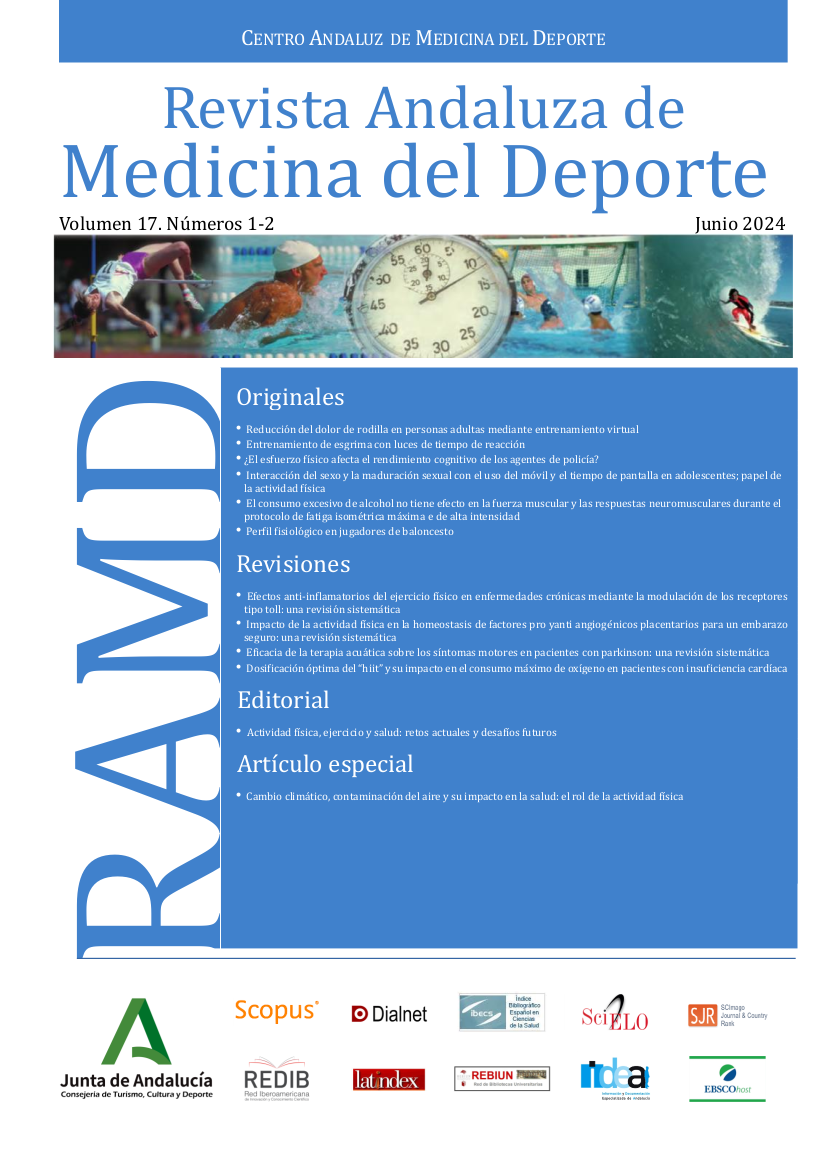BINGE DRINKING HAS NO EFFECT ON MUSCULAR STRENGTH AND NEUROMUSCULAR RESPONSES DURING MAXIMAL AND HIGH-INTENSITY ISOMETRIC FATIGUE PROTOCOL
Resumen
We investigated the effects of binge drinking on maximal strength, time to exhaustion during a high-intensity isometric fatigue protocol, and neuromuscular responses of the elbow flexor muscles. Ten young male participants were randomized in two conditions: (1) alcohol consumption (ALC) or (2) placebo consumption (PLA). In each condition, volunteers ingested 1g of alcohol per kg of body mass of alcoholic beer (ALC) or non-alcoholic beer (PLA). Neuromuscular performance (elbow flexors peak torque and time to exhaustion – TTE - during an isometric fatigue protocol at 70% of peak torque) and EMG parameters (amplitude and median frequency) of biceps brachii (BB) and brachioradialis (BRA) were assessed before and after drink ingestion. A breath alcohol concentration of 1.1 ± 0.25 mg/L was observed in ALC condition. Torque was similar between-conditions (p = 0.76) and condition*moment interaction (p = 0.92), with a significant reduction in post in both conditions (p = 0.01; ALC: -4.4%; PLA: -4.7%). TTE and maximal EMG amplitude of BB were not affected by conditions and moments (p > 0.05). Maximal EMG amplitude of BRA was reduced in post in both conditions (ALC: -16.4%; PLA: -14.6%). EMG amplitude of BB and BRA during the fatigue protocol, the behavior was similar between moments and conditions (p > 0.05) and we only observed an increase during protocol (p < 0.05). Median frequency of BB was higher in PLA compared to ALC (+9.8%). Decreases were observed in both muscles during protocol (p < 0.001). Our results revealed that binge drinking did not alter maximal strength, time to exhaustion during high-intensity isometric fatigue protocol, and neuromuscular responses.














